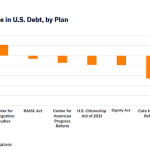
The financial scene in South Korea is about to undergo a dramatic change.
With the most recent proposal from the Financial Services Commission to amend the Credit Finance Act, the country’s perspective on bitcoin transactions is opening up a new avenue.
With this action, mainly intended to stop money laundering and reduce speculative trading, South Korea is now leading international attempts to manage the intricate dynamics of virtual currencies. This historic move by South Korea may establish a new benchmark for crypto market regulation, striking a balance between financial security and innovation while the world watches.
Rationale Behind the Amendment
Proposed changes to South Korea’s Credit Finance Act result from long-standing worries about the financial hazards of using credit cards to buy cryptocurrencies. Concern over these transactions’ potential to enable the illicit outflow of domestic money has been voiced by the FSC. Furthermore, there needs to be more attention regarding how South Korean investors may be encouraged to engage in speculative activity by bitcoin trading on outside platforms. These worries are warranted since the international scope of crypto marketplaces presents particular difficulties for financial security and regulatory supervision. The amendment aims to reduce risks that might cause the nation’s financial system to become unstable and put investors at unnecessary risk by emphasising these areas.
Public Feedback Process
The FSC has allowed the public to provide input on the proposed revision by a democratic method of policymaking. This action demonstrates the government’s dedication to inclusion and openness in its regulatory procedures. There is until February 13, 2024, for interested parties—investors, traders, and members of the public—to express their thoughts, worries, and recommendations about the modification. A wide range of viewpoints must be considered during this public consultation period before the modification is finalised. After this time, the amendment will be carefully examined and put to a vote.
By the first half of 2024, this new rule should be in effect, indicating that the South Korean government is responding quickly to the changing dynamics of the cryptocurrency industry.
Past Regulatory Efforts in South Korea
South Korea has a long history of regulating the cryptocurrency market, indicating its strong commitment to creating a transparent and safe environment for digital assets. The nation changed its financial reporting legislation in 2021, significantly advancing. A new mechanism for cryptocurrency transactions was imposed by this law, requiring users to execute their trades through withdrawal and deposit accounts connected to local exchanges. The requirement that these accounts be validated using the users’ true identities was implemented to improve market accountability and transparency. Local crypto trading sites also have to comply with stricter new regulations. They must form alliances with neighbourhood banks to provide fiat-to-crypto services.
This new legislation is expected to take effect by the first half of 2024; executives at Bitcoin Apex UK remark that this move shows how swiftly the South Korean government is adapting to the shifting dynamics of the cryptocurrency business.
Potential Impacts of the Amendment
The proposed modification to the Credit Finance Act would significantly impact South Korean crypto enthusiasts. The legislation can alter the accessibility of digital assets in the nation by prohibiting using credit cards for cryptocurrency purchases. Credit cards provide liquidity and convenience, making them an ideal tool for interacting with the cryptocurrency market for many traders and investors. The suggested adjustments may present further difficulties for people who have depended on this system for their transactions. Notwithstanding these possible obstacles, the change is expected to strengthen compliance with national laws and reduce the possibility of illegal financial activity in cryptocurrency.
This change highlights the need to balance innovation and financial security and indicates a more significant worldwide trend towards more robust regulatory frameworks for digital currencies.
Global Context and International Implications
The proposed amendment from South Korea has essential ramifications that extend beyond its borders and add to the changing global discourse surrounding cryptocurrency legislation. With this action, South Korea joins a growing international consensus to reduce the dangers connected to digital currencies, especially those involving money laundering and illicit financial movements. In addition to resolving issues with domestic financial security, South Korea’s move to restrict the use of credit cards for cryptocurrency purchases is part of a larger initiative to create a more transparent and regulated global cryptocurrency market.
The amendment demonstrates a proactive strategy to protect financial institutions while adjusting to the explosive expansion of digital assets, and it may serve as a model for other countries facing comparable difficulties. It also shows the growing necessity of international collaboration to regulate a financial domain that is intrinsically cross-border. As a result, South Korea’s actions may impact other nations’ policy choices, strengthening the case for a more coordinated international approach to cryptocurrency regulation.
A significant step forward in regulating cryptocurrencies is South Korea’s proposed modification to the Credit Finance Act, which balances innovation and strong financial oversight. This programme not only tackles domestic issues such as illicit financial transfers and speculative trading, but it also has international resonance. It might serve as a model for other countries pursuing comparable goals. South Korea’s strategy, which combines vision and flexibility, may become a model as the rest of the globe adjusts to the rapidly changing world of digital currencies. This action demonstrates South Korea’s leadership in creating a safe and transparent digital financial future and serves as a regulatory measure.
Read more:
South Korea Moves to Curb Crypto Speculation: Bans Credit Card Purchases






